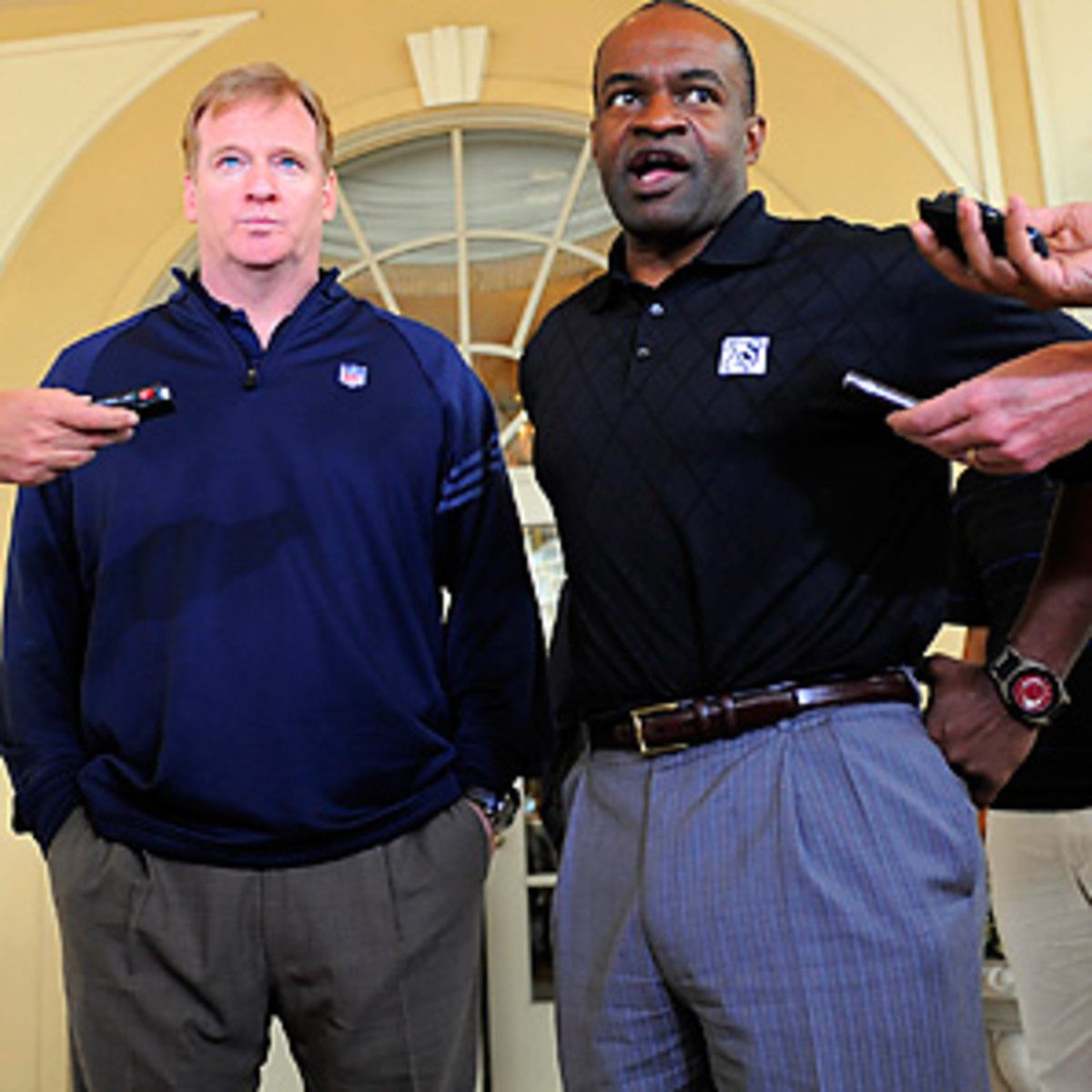With end of NFL lockout at hand, it's time to focus on football again
This time, it finally feels over. If this were a football game instead of a four-month-plus labor stand-off, it would be as if both the owners and players have gone into the victory formation, going through the motions and formalities as they drop to one knee in anticipation of a successful conclusion and maybe even a little celebration.
Though some issues remain to be settled, including whether or not the players will get the seven-year opt-out clause they have sought in a new CBA, the game-over stage is at hand. At long last. It is expected that the players' executive board will vote to ratify a new labor deal with the league on Monday, putting the wheels in motion to start the new league year later this week and putting the NFL fully back into business.
The league's 130-day (or so) lockout will end by midweek because cooler heads and common sense prevailed. Even though both seemed in short supply as recently as Thursday, when the owners emphatically ratified their half of the new 10-year collective bargaining agreement, and then watched as the players and their union largely recoiled at the notion that a new deal was in place. Feelings got hurt, and mistrust again ruled.
But that was then, and this is now. And when you stand back and really try to view the whole three-year labor drama in perspective, the inescapable realization is that Armageddon was avoided. No regular season games will be lost. Nearly the entire preseason schedule will be saved. And no long-term and lasting damage of true significance was done to the fans of the game, who clearly hated watching this most unusual of offseasons play itself out.
Yes, free agency had to be rescheduled and condensed, and teams will have to scramble in the next couple of eventful weeks to remake their rosters and prepare for a season that is almost upon them. But after so many predictions of doom, the worst didn't happen, and 2011 will not take its place alongside 1982 and 1987 as strike-shortened seasons, in which the NFL suffered self-inflicted wounds.
The reality is the NFL's offseason lasts roughly six months every year and largely ends as August arrives and the game returns to the field. This year? Plenty different in some key ways, but the bottom line will be that all teams will be back on the field and playing football about six months after the Green Bay Packers hoisted their first Super Bowl trophy in 14 years. Just as they would have been in an offseason that wasn't dominated by labor strife.
If the players vote for ratification occurs Monday as expected, by Wednesday we may have players reporting back to their team complexes, and training camps could begin to open next weekend, which also could simultaneously mark the start of what promises to be the wildest free agency period in league history. A week from now, all could return to a relative sense of normal in the NFL, as July gives way to August and the nation's attention starts to return to football.
It was an ugly and messy process to follow, but labor negotiations usually are. Especially when billions are at stake. In the end, however, these two sides didn't choose the path of mutual destruction. They flirted with it, but finally realized that theirs is a lucrative and fortuitous marriage that cannot be ended. The players gave on some fronts. The owners gave on even more. And the end result is that the focus is about to return to the practice of football, rather than the business of football.
Credit belongs, just as blame would have, to both NFL commissioner Roger Goodell and NFLPA executive director DeMaurice Smith. They wouldn't let the setbacks suffered late Thursday afternoon and evening grow into a divide that killed the deal and would have sent both players and owners back to square one in this contentious labor negotiation. Goodell and Smith had difficult and very different jobs to do at times in this saga, but they're both going to get their due for shepherding their constituencies through a situation that could have unraveled at several different points.
And because they did, the NFL is back, and it's time for the game to again take center stage. The lockout deprived fans of year-round football, but it didn't wreck a season and didn't alienate a fan base to the point of no return. The worst-case scenario was thankfully averted.
Neither side got everything they wanted, but good negotiations are like that. Now that this CBA fight is almost over, and labor peace seems finally at hand, both the players and the owners have the right to claim success. They both won their share of points, but the biggest victory of all was the one they managed jointly: Not damaging the game or its fans. That was the singular outcome that neither side could do without.






